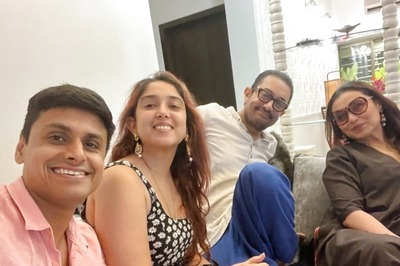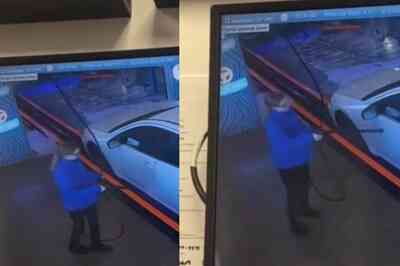
views
Dharamsala: Indicating a long innings, Tibetan spiritual leader the Dalai Lama on Saturday said he would decide at 90 whether or not he should have a successor. He also warned that any candidate chosen for political ends by anyone, including China, should not be recognised or accepted.
"When I am about 90, I will consult the high lamas of the Tibetan Buddhist traditions, the Tibetan public, and other people concerned who follow Tibetan Buddhism, and re-evaluate whether the institution of the Dalai Lama should continue or not," a statement quoting the 76-year-old elderly monk, respected by millions as a living god, said here.
"If it's decided that the reincarnation of the Dalai Lama should continue and there is a need for the 15th Dalai Lama to be recognised, responsibility for doing so will primarily rest on the (Dalai Lama's) Gaden Phodrang Trust," he said.
The Nobel laureate also clarified that he will leave "clear written instructions on the issue".
"Bear in mind that, apart from the reincarnation recognised through such legitimate methods, no recognition or acceptance should be given to a candidate chosen for political ends by anyone, including those in the People's Republic of China," he said.
The Tibetan system of recognising reincarnations is an authentic mode of investigation based on people's recollection of their past lives.
The spiritual leader said, "As far back as 1969, I made clear that people concerned should decide whether the Dalai Lama's reincarnations should continue in the future. However, in the absence of clear guidelines... there is an obvious risk of vested political interests misusing the reincarnation system."
"Therefore, while I remain physically and mentally fit, it seems important to me that we draw up clear guidelines to recognise the next Dalai Lama, so that there is no room for doubt or deception."
On a new law that makes the Chinese government in control and primary in recognition of reincarnations, the Dalai Lama said, "Today, the authoritarian rulers of the People's Republic of China, as communists reject religion, but still involve themselves in religious affairs."
"This is outrageous and disgraceful. The enforcement of various inappropriate methods for recognising reincarnations to eradicate our unique Tibetan cultural traditions is doing damage that will be difficult to repair."
The Dalai Lama on Friday clarified that the issue of reincarnation is his personal right.
"My reincarnation is to be decided by myself, nobody has the right to decide about that," he said while speaking on the second day of a three-day Buddhist conference here.
Born Tenzin Gyatson on July 6, 1935, at Taktser hamlet in northeastern Tibet, the present Dalai Lama was recognised at the age of two as the reincarnation of the 13th Dalai Lama Thubten Gyatso.
He fled Tibet after a failed uprising against the Chinese rule in 1959, basing his Tibetan government-in-exile here. It is not recognised by any country.
The Dalai Lama has been following a "middle-path" policy that seeks greater autonomy for Tibet rather than complete independence.
However, the Chinese view him as a hostile element bent on splitting Tibet from China. India is home to around 100,000 Tibetans.




















Comments
0 comment